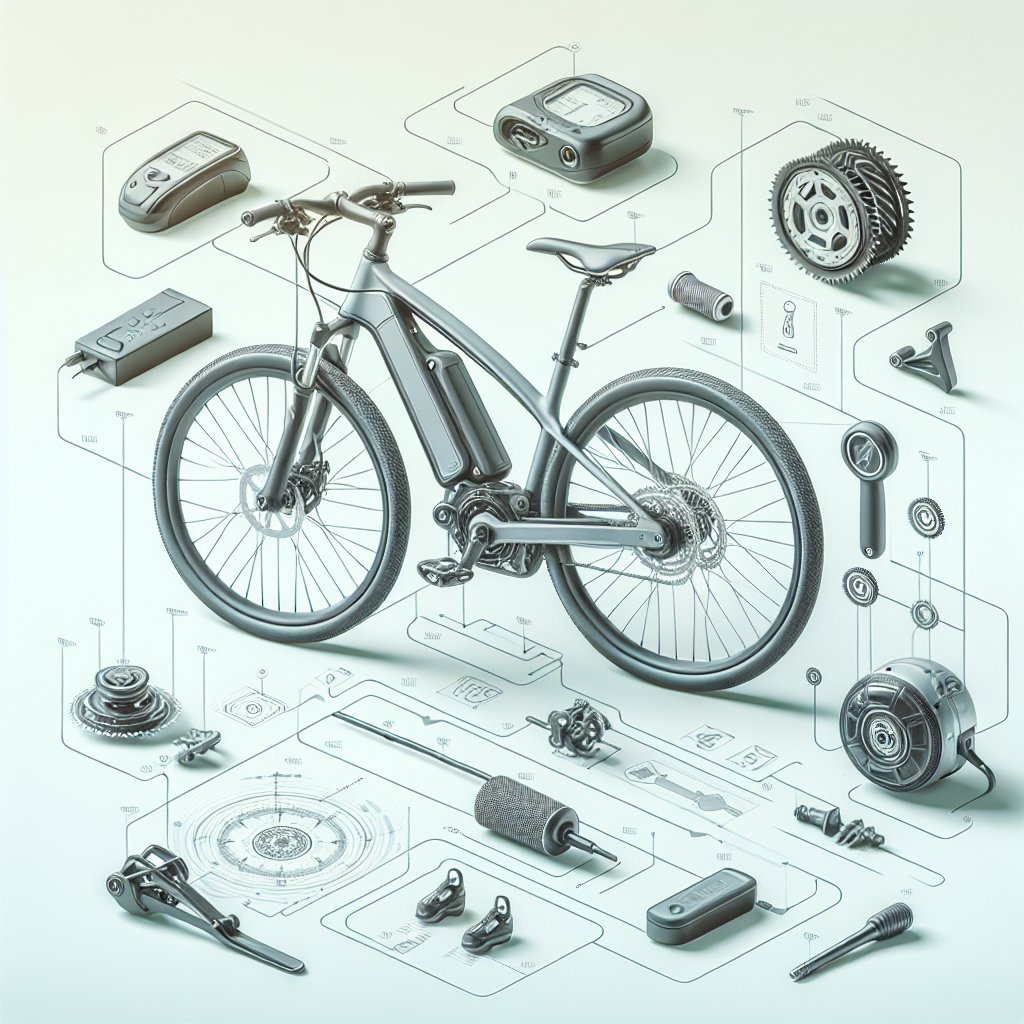Electric bikes, commonly known as e-bikes, have surged in popularity over the past decade. They offer a unique blend of traditional cycling and modern technology, making them an attractive option for many. However, like any other mode of transportation, e-bikes come with their own set of advantages and disadvantages. This article delves into the pros and cons of owning an electric bike, helping you make an informed decision.
Advantages of Owning an Electric Bike
Enhanced Commuting Experience
One of the most significant benefits of owning an electric bike is the enhanced commuting experience. E-bikes are equipped with a motor that assists with pedaling, making it easier to cover longer distances without getting exhausted. This is particularly beneficial for those who have a long commute to work or school. The motor assistance can help you maintain a consistent speed, navigate hills effortlessly, and reduce the overall time spent on the road.
Environmental Benefits
Electric bikes are an eco-friendly alternative to cars and motorcycles. They produce zero emissions, which helps reduce your carbon footprint. By choosing an e-bike over a car for short trips, you contribute to less air pollution and a cleaner environment. Additionally, e-bikes consume far less energy compared to electric cars, making them a more sustainable option for daily transportation.
Cost-Effective Transportation
While the initial cost of an electric bike can be high, it is a cost-effective mode of transportation in the long run. E-bikes require less maintenance compared to cars and motorcycles. There are no fuel costs, and the cost of electricity to charge the battery is minimal. Moreover, many cities offer incentives and subsidies for e-bike owners, further reducing the overall cost of ownership.
Health Benefits
Despite the motor assistance, riding an electric bike still provides a good workout. You can choose the level of assistance you need, allowing you to get as much or as little exercise as you want. Regular cycling can improve cardiovascular health, strengthen muscles, and enhance overall fitness. E-bikes make it easier for people of all fitness levels to enjoy the benefits of cycling.
Convenience and Flexibility
Electric bikes offer a high level of convenience and flexibility. They are easy to park and can often be taken on public transportation, making them ideal for multi-modal commutes. E-bikes also allow you to avoid traffic congestion, making your commute more predictable and less stressful. Additionally, many e-bikes come with features such as cargo racks and panniers, making it easy to carry groceries, work supplies, or other items.
Disadvantages of Owning an Electric Bike
High Initial Cost
One of the main drawbacks of owning an electric bike is the high initial cost. Quality e-bikes can be expensive, with prices ranging from several hundred to several thousand dollars. This can be a significant investment, especially when compared to traditional bicycles. While the long-term savings on fuel and maintenance can offset this cost, the initial expense can be a barrier for many potential buyers.
Battery Life and Charging
The battery is a crucial component of an electric bike, and its limitations can be a disadvantage. Most e-bike batteries have a range of 20 to 60 miles on a single charge, depending on factors such as terrain, rider weight, and level of motor assistance. This range may not be sufficient for long-distance commuters. Additionally, charging the battery can take several hours, and finding a convenient place to charge it can be challenging, especially if you live in an apartment or do not have access to a power outlet in your parking area.
Weight and Portability
Electric bikes are generally heavier than traditional bicycles due to the motor and battery. This added weight can make them more difficult to carry, transport, and store. If you need to carry your bike up stairs or lift it onto a bike rack, the extra weight can be a significant inconvenience. Additionally, the bulkier frame can make it harder to maneuver the bike in tight spaces or crowded areas.
Maintenance and Repairs
While e-bikes require less maintenance than cars, they still need regular upkeep. The motor, battery, and electrical components can be more complex and expensive to repair than the parts of a traditional bicycle. Finding a qualified technician to service an e-bike can also be more challenging, as not all bike shops have the expertise to handle electric bike repairs. This can lead to higher maintenance costs and longer downtimes if your bike needs repairs.
Legal and Regulatory Issues
The legal status of electric bikes varies by region, and navigating these regulations can be confusing. Some areas have specific laws regarding the use of e-bikes, such as speed limits, age restrictions, and where they can be ridden. In some places, e-bikes may be classified differently from traditional bicycles, requiring registration, insurance, or a special license. It’s essential to familiarize yourself with the local laws and regulations before purchasing an electric bike to ensure you comply with all requirements.
Conclusion
Owning an electric bike comes with a range of advantages and disadvantages. The enhanced commuting experience, environmental benefits, cost-effectiveness, health benefits, and convenience make e-bikes an attractive option for many people. However, the high initial cost, battery limitations, weight, maintenance challenges, and legal issues are important factors to consider. By weighing these pros and cons, you can determine whether an electric bike is the right choice for your transportation needs and lifestyle.












